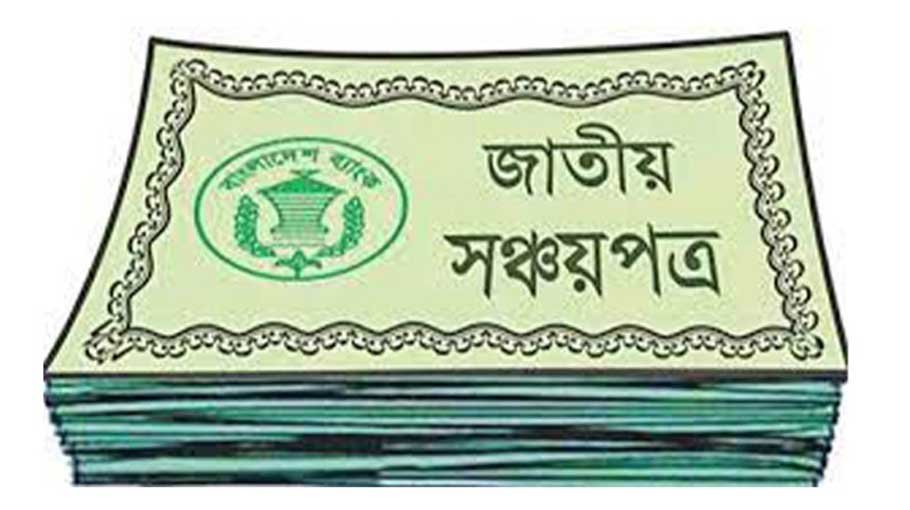Savings tools sale sees sharp fall

The sale of savings certificates has started to decline due to cut in interest rates and Covid-19 and also because of the sale of savings certificates worth Tk 5,365 crore in the first month of the current fiscal year.
This figure is about 38 percent less than that of the same period last year. In July last year, savings certificates worth Tk 8,705 crore were sold, according to the National Savings Department (NSD).
Sources said the government has set various conditions to discourage excessive investment in savings certificates. In addition, the corona pandemic has also affected the economy. As a result, the sale of savings certificates has decreased.
"It is good for the government that it has to pay less subsidy against savings certificates as sales of savings tools fall. But it is important that the government must save the interests of small investors," said former Bangladesh Bank governor Dr Atiur Rahman.
Read more: ‘Success of businesses can drive growth, help achieve sustainable dev’
He suggested increasing the ceiling of investment for small investors who consider savings certificates as a safe investment for them.
''We are worried about our future. I'm a retired person and also 65 years old. I have bought a family saving certificate worth Tk 25 lakh with my pension money. Now, I am really interested in the savings certificate. As the government decreased the interest rate, how will I bear all my family expenses,” said Monir Hossain, a senior citizen at Rampura in Dhaka.
“If the government increases the ceiling of investment up to Tk 30 lakh, it will be more helpful for all small investors,” he also said.
According to NSD, savings certificates worth Tk 5,365 crore were sold in July of the 2021-22 financial year. In contrast, Tk 3,261 crore has been paid as principal amount. The remaining amount after the principal is considered as net sale. As the net sales amount in July was Tk 2,104 crore, the net sales at this time were Tk 3,705 crore last year.
The government sets a target in the budget every year for the sale of savings certificates. But with higher profits and safer investments, sales are much higher than the target.
On June 3 this year, the budget deficit for the fiscal year 2021-22 was estimated at Tk 211,191 crore. Apart from grants, the deficit is estimated at Tk 214,681 crore.
In this year's budget, the target has been set to borrow Tk 32,000 crore from savings certificates to meet the income-expenditure deficit, which is 60 percent more than last fiscal. In the budget of the last 2020-21 financial year, the target was Tk 20,000 crore.
Recently, the government has made several changes in the investment in savings certificates and its management. The Tax Identification Number (TIN) has been made mandatory in all budgets for purchasing savings certificates or postal savings of more than Tk 2 lakh. Only in five-year Bangladesh Savings Certificates will be available from the Department of Savings branches.
On May 17 this year, the Internal Resources Department (IRD) of the Ministry of Finance informed that from now on, Bangladesh Savings Certificates for a period of five years cannot be purchased from a branch or post office of a Scheduled Bank.
These savings certificates can be purchased only from the Savings Bureau under the National Savings Department. Now, if an investor wants to buy a five-year Bangladesh Savings Certificate, he can do so only by visiting the branch offices of the Department of Savings.
According to the National Savings Department, in the last financial year (July-June), Tk 1 lakh 12188.24 worth of savings certificates were sold. Of this, Tk 70,228.70 crore has been paid as interest on the previously sold savings certificates.
The net sales for the last financial year were Tk 41,959.54 crore, which is almost three times more than its previous financial year. During the entire period of the 2019-20 financial year, the government's net loan from savings certificates came to Tk 14,428 crore.
NSD officials said the remaining amount after paying the interest-principal of the previously sold savings certificates is called net sale. The sale money is deposited in the government treasury and the government uses it to implement state programs.
In return, the government pays interest every month to the customers of the savings certificates. For this reason, in economic terms, the net sale of savings certificates is considered as 'debt' or 'borrowing' of the government.
Read more: New Thai envoy for FTA to create more scope of business
The last time interest rates on all types of savings certificates were reduced by an average of 2 percent in May 2015 to discourage investment in savings certificates. After a long six years, the government has reduced the profit rate of savings certificates on September 21.
Now, for those who have invested more than Tk 15 lakh in savings certificates, their profit rate, has been reduced to two percent. However, the profit rate below Tk 15 lakh has been kept unchanged. They will get profit as per the previous rules.
At present, the new rates are applicable for the procurement of savings certificates afresh while the existing owners will continue receiving previous rates until the maturity of their instruments.
Under the re-fixed rate, the return of 5-year Bangladesh Sanchayapatra, when matured, will be 11.28 per cent for investment up to Tk 15 lakh, 10.30 per cent for investment up to 30 lakh, and 9.30 per cent for investment over 30 lakh. Now the rate of a matured 5-year Bangladesh Sanchayapatra is fixed at 11.28 per cent.



